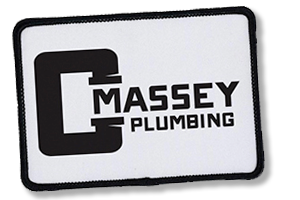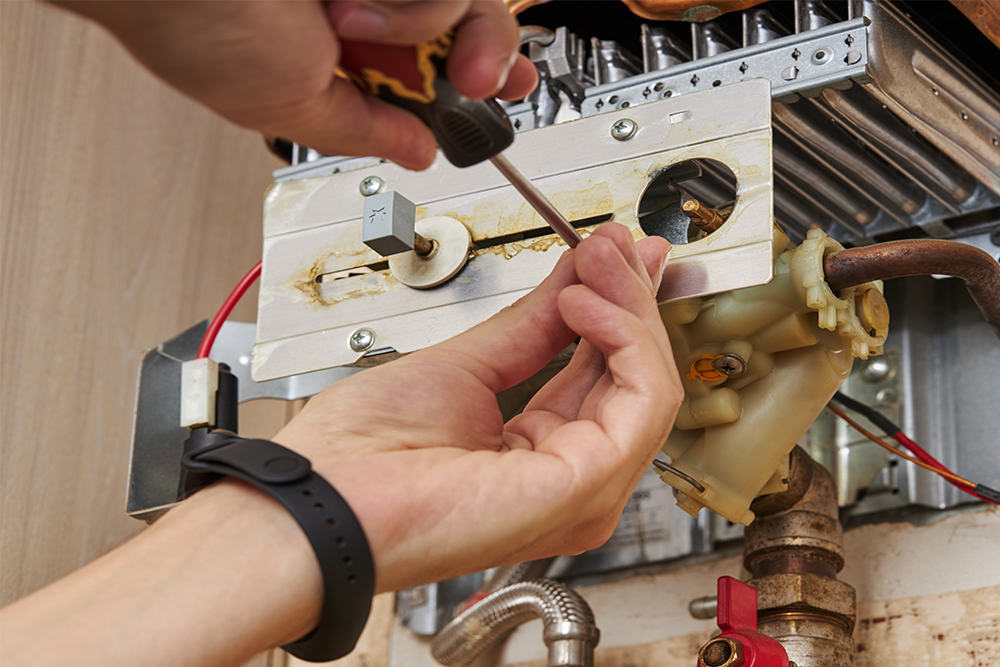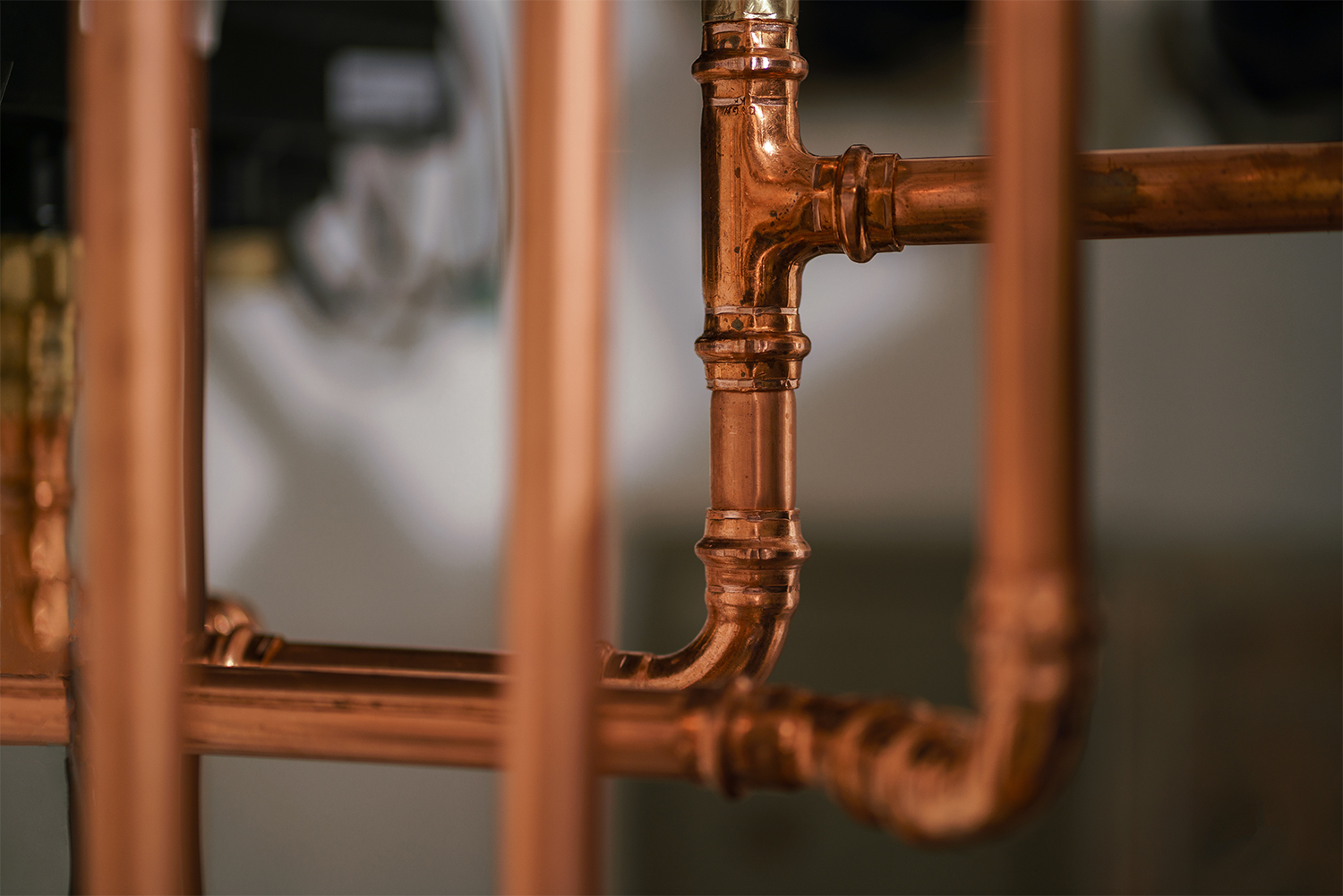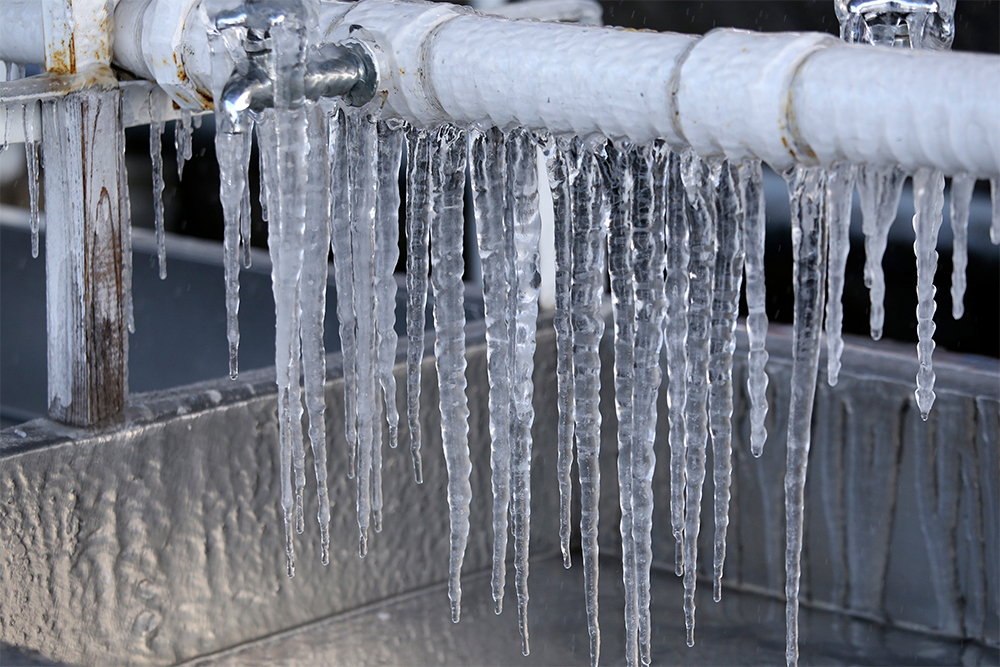As a homeowner, many issues exist, such as managing your money, keeping your house comfortable, and ensuring your family is safe. Amid all these responsibilities, it’s easy to overlook the often-forgotten hero behind the scenes—your plumbing system. Regular plumbing maintenance is an essential aspect of homeownership that can save you from costly repairs, extend the lifespan of your plumbing infrastructure, and ensure efficient water flow.
This blog will discuss the need for routine plumbing maintenance and offer helpful advice for keeping your plumbing system in great shape. Read on to learn more.
Why Is Regular Plumbing Maintenance Important?
Let’s explore some of the reasons why regular plumbing maintenance is crucial.
Avoiding Costly Repairs
Cost reductions are among the most compelling arguments for prioritizing routine plumbing maintenance. Imagine waking up to a burst plumbing or a flooded bathroom in the dead of winter. These emergencies disrupt your daily life and can lead to significant financial burdens. By taking proactive measures and investing in regular plumbing maintenance, you can prevent these major plumbing issues from occurring in the first place.
Regular maintenance allows a trained professional to inspect your plumbing system, identify any signs of wear or damage, and address them before they escalate into costly repairs. Small leaks, for example, may go unnoticed for months until they cause severe water damage or mold growth. By catching these issues early on, you can save yourself from the headaches and expenses of extensive repairs.
Additionally, regular maintenance helps ensure that your plumbing infrastructure, including pipes, fixtures, and appliances, remains in good working condition. It allows for detecting and repairing minor problems that, if left unattended, can cause significant damage over time. By investing in preventative care, you safeguard your home and wallet.
Extending the Lifespan of Plumbing Systems
Your home’s plumbing infrastructure has a finite lifespan, just like any other system. However, you may considerably increase its longevity with routine maintenance. Consider doing it like an oil change and tune-up for your car. The more time it lasts, the more you will take care of it.
During routine plumbing check-ups, professionals can identify and address issues that may affect the lifespan of your plumbing system. For instance, they can spot signs of corrosion, leaks, or mineral buildup in your pipes. Promptly addressing these problems prevents them from worsening and potentially causing irreparable damage.
Regular maintenance also allows for inspecting and maintaining important components such as water heaters, sump pumps, and sewage systems. These appliances and systems are critical for the smooth operation of your plumbing infrastructure, and by keeping them in good condition, you ensure their optimal performance and longevity.
Ensuring Efficient Water Flow
Efficient water flow is vital for a functional and convenient plumbing system. Regular maintenance plays a key role in ensuring that water flows smoothly throughout your home without any disruptions or fluctuations in pressure.
Over time, sediment, mineral deposits, and debris can accumulate in your pipes, restricting water flow and causing low water pressure. These issues, such as showering or washing dishes, affect your daily activities and can indicate underlying plumbing problems. By scheduling regular maintenance, you can prevent clogs and blockages, ensuring water flows freely and consistently.
Moreover, during maintenance visits, professionals can inspect and clean your faucets, showerheads, and aerators. These components can accumulate mineral deposits and become clogged, affecting water flow and wasting water. You can enjoy optimal water flow while conserving this precious resource by cleaning and maintaining these fixtures.
Conserving Water and Reducing Utility Bills
In today’s world, where environmental conservation is increasingly important, plumbing maintenance also contributes to water conservation efforts. By detecting and fixing leaks, professionals help prevent unnecessary water wastage.
Even seemingly minor leaks can result in significant water loss over time. A dripping faucet or a running toilet may seem like a small deal, but when left unattended, they can save thousands of gallons of water annually. Regular maintenance allows for promptly identifying and repairing these leaks, helping conserve water and reduce environmental impact.
Furthermore, water conservation directly translates to reduced utility bills. By addressing leaks and optimizing the efficiency of your plumbing system, you can see noticeable savings on your water bills. These savings increase, making regular plumbing maintenance a wise financial investment.
Signs That Indicate the Need for Plumbing Maintenance
Low Water Pressure
Have you noticed a weak water flow from your faucets or shower heads? Low water pressure is a distressing issue that frequently indicates that your plumbing system needs repair. While it could be due to issues with the municipal water supply, such as maintenance work or high demand, it’s essential to rule out any internal plumbing issues.
Numerous factors, including silt buildup, pipe leaks, and obstructions, might result in low water pressure in your home. Regular plumbing maintenance can identify and resolve these issues, restoring water pressure to its optimal level. An expert plumber can evaluate the situation and suggest the required actions to manage low water pressure successfully.
Slow Drains
Is the water in your bathtub, shower, or sink always draining? Slow drains are a typical plumbing problem that may indicate more severe issues. While simple DIY solutions like a plunger or drain snake can frequently clear minor obstructions, persistently slow drains might need expert assistance.
Regular maintenance can help prevent the buildup of debris, hair, soap scum, or grease that can lead to clogged drains. A professional plumber can inspect and clean your drains, ensuring that water flows freely and preventing more significant blockages from occurring in the future.
Unpleasant Odors
Are foul odors wafting up from your drains or toilets? Unpleasant smells in your plumbing system can indicate sewer lines or drainage issues. It’s essential to address these odors promptly, as they can indicate potentially hazardous conditions and compromise the indoor air quality of your home.
Regular plumbing maintenance can identify the sources of these odors and provide appropriate solutions. Whether it’s a blockage in the sewer line, a malfunctioning vent pipe, or a dried-out P-trap, a professional plumber can diagnose and rectify the issue, ensuring your home smells fresh and clean.
Noisy Pipes
Do your pipes make strange noises, such as banging, rattling, or squeaking? Noisy pipes can be disruptive and even alarming, but they’re often a symptom of an underlying plumbing problem. The causes of noisy pipes can vary, ranging from loose valves or water hammers to sediment buildup or high water pressure.
Regular plumbing maintenance can identify the source of these noises and take appropriate measures to address them. A professional plumber can assess your plumbing system, adjust water pressure, secure loose pipes, or install water hammer arrestors to eliminate noise and ensure smooth, quiet operation.
Discolored Water
Has the color of your tap water suddenly changed, appearing cloudy, brown, or rusty? Discolored water is a concerning issue that should not be ignored. It can indicate various problems, such as rusted pipes, sediment buildup, or contamination.
It’s critical to schedule a plumbing maintenance appointment when you see colored water. A skilled plumber can look at your plumbing system, determine what’s causing the damage, and suggest the best way to fix it. You can immediately ensure your water source is safe and good by taking care of discolored water.
Conclusion
Regular plumbing maintenance is a crucial aspect of homeownership that should be considered. By prioritizing the care and maintenance of your plumbing system, you can avoid costly repairs, extend the lifespan of your plumbing infrastructure, ensure efficient water flow, conserve water, and reduce utility bills. By being proactive and scheduling regular maintenance appointments with experienced plumbers, you can detect and resolve minor issues before they become more severe.
Keep in mind that your home’s plumbing system acts as a secret superhero, operating discreetly in the background to ensure you have access to clean water, enjoyable showers, and functional appliances. It’s essential to acknowledge its significance before encountering a plumbing crisis.
By prioritizing regular plumbing maintenance, you can experience the reassurance of a well-kept and efficient system, granting you peace of mind. Call us at (919) 795-0546.
FAQs About Regular Plumbing Maintenance
How often should plumbing maintenance be performed?
Some factors, including the age of your plumbing system, water supply quality, and utilization patterns, influence how frequently you should maintain your plumbing system. It is generally recommended to schedule a professional plumbing inspection and maintenance at least once a year.
However, older homes or properties with specific plumbing issues may require more frequent maintenance visits. Consulting with a professional plumber can help determine the ideal maintenance schedule for your circumstances.
Can I perform plumbing maintenance tasks myself?
While homeowners can perform basic plumbing maintenance tasks, knowing your limitations is essential. Simple tasks like cleaning faucets, showerheads, and aerators or visually inspecting visible pipes for leaks can be done by homeowners.
However, more complex tasks, such as water heater maintenance, sewer line inspections, or extensive repairs, are best left to trained professionals. Attempting complicated plumbing tasks without the necessary expertise can lead to costly mistakes and further damage. It is generally prudent to seek the advice and assistance of a qualified plumber.
What are the common plumbing issues that regular maintenance can prevent?
Regular plumbing maintenance can help prevent many common issues, including leaks, clogs, burst pipes, water heater malfunctions, and sewer line backups. By addressing minor problems early on, you can avoid major plumbing emergencies and the associated damages, inconveniences, and expenses.
Maintenance visits allow professionals to inspect your plumbing system, identify potential issues, and perform necessary repairs or preventive measures to keep your plumbing infrastructure in excellent condition.
How much does professional plumbing maintenance cost?
Professional plumbing maintenance costs may vary based on the complexity of the plumbing system, the extent of maintenance required, and the location. On average, homeowners can expect to spend anywhere from $100 to $500 for a routine plumbing maintenance visit.
Remember that this expense is an investment in the durability and efficacy of your plumbing system, which could save you money on future repairs. Consulting with local plumbers and obtaining multiple quotes can help you better understand the costs specific to your area.
Does homeowners insurance cover plumbing maintenance?
Homeowners’ insurance policies typically cover sudden and accidental damages to your plumbing system, such as burst pipes resulting from freezing temperatures or sudden leaks due to plumbing failures. However, regular plumbing maintenance considered preventive care, is generally not covered by insurance.
It is important to review your insurance policy and understand its coverage limitations regarding plumbing-related issues. Investing in regular plumbing maintenance is a proactive step to prevent emergencies and minimize the likelihood of making insurance claims for avoidable damages.



